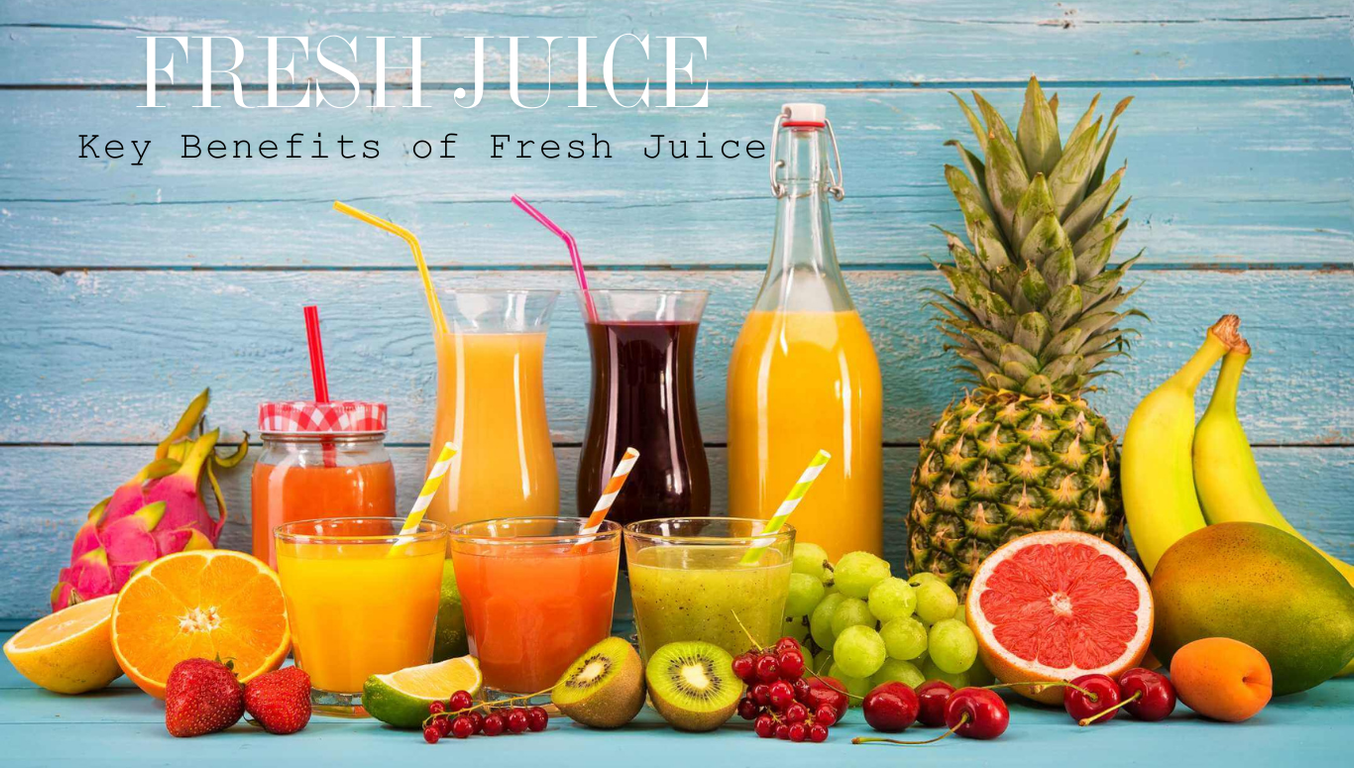Fresh Juice: A Burst of Natural Flavor and Nutrients in Every Glass
Fresh juice is more than just a delicious, refreshing drink; it’s a simple, natural way to pack in essential vitamins, minerals, and antioxidants that support overall wellness. Whether it’s a vibrant orange juice for an immune boost, green juice for detoxification, or berry juice for antioxidant power, fresh juice provides a pure source of nutrients without added sugars or preservatives. Perfect for energizing your mornings, recovering after a workout, or simply enjoying a flavorful hydration boost, fresh juice is a versatile and nourishing addition to any lifestyle.
At Juice Recipes, we’ll guide you through an easy fresh juice recipe, outline its health benefits, and answer practical FAQs for making the most of this vibrant juice.
How to Make Fresh Juice
Ingredients:
- Your choice of fruits and vegetables, such as oranges, apples, carrots, celery, berries, or leafy greens
- Optional: herbs like mint, basil, or ginger for added flavor
- 1-2 cups of cold water (adjust for consistency)
- Ice cubes (optional, for serving)
Instructions:
- Wash and chop your fruits and vegetables into manageable pieces.
- Place the ingredients in a juicer or blender, adding water to reach your desired consistency.
- If using a blender, strain the mixture through a fine mesh sieve for a smoother texture.
- Serve over ice, and enjoy your fresh juice immediately for the most nutrients and flavor.
Key Benefits of Fresh Juice
Tips for Storing and Enhancing Fresh Juice
- Storage Tips: For optimal flavor and nutrient retention, consume fresh juice immediately. If necessary, store in an airtight container in the refrigerator for up to 24 hours.
- Enhance the Flavor: Add a touch of ginger, lemon, or fresh herbs like mint or basil for an extra layer of flavor. For added sweetness, try pineapple or apples.
- Boost the Nutrition: Add superfoods like chia seeds, flaxseeds, or spirulina to increase the fiber, omega-3s, and essential nutrients.
FAQs About Fresh Juice: Practical Tips and Advice
Q1: How do I choose the best ingredients for fresh juice?
Choose ripe, fresh fruits and vegetables for the best flavor and nutrient content. Organic produce is ideal to avoid pesticides, but washing thoroughly is also effective.
Q2: Can I make fresh juice without a juicer?
Yes, use a blender. Blend the ingredients with a bit of water, then strain through a sieve or cheesecloth for a smooth, pulp-free juice.
Q3: How much fresh juice should I drink each day?
One glass (8-12 ounces) of fresh juice is typically enough to enjoy its benefits without overloading on natural sugars. Balance it with whole fruits and vegetables.
Q4: How can I make fresh juice taste less bitter?
If your juice tastes too bitter, try adding sweet fruits like apples or pineapple, or balance the flavor with a splash of lemon juice.
Q5: Is it better to drink fresh juice on an empty stomach?
Drinking fresh juice on an empty stomach can help with nutrient absorption and provides a quick energy boost. However, it’s also fine to enjoy juice alongside meals.
Q6: Can I freeze fresh juice for later use?
Yes, pour fresh juice into ice cube trays to freeze. Use the cubes in smoothies or other drinks for added flavor and nutrients without needing to make a fresh batch.
Q7: How can I reduce the pulp in my fresh juice?
If you prefer juice with less pulp, strain the juice through a fine mesh sieve or cheesecloth, or blend on a low setting for a smoother result.
Q8: Is it okay to mix different fruits and vegetables in fresh juice?
Yes, mixing fruits and vegetables creates a balanced flavor and maximizes nutrients. Try combos like apple-carrot-ginger or cucumber-celery-spinach for a tasty blend.
Q9: How long can fresh juice be stored without losing nutrients?
Fresh juice retains the most nutrients within the first 15 minutes after making it. If stored in an airtight container, it can be kept in the refrigerator for up to 24 hours.
Q10: Can I use fresh juice in cooking or baking?
Absolutely! Fresh juice works well in salad dressings, marinades, smoothies, or as a flavor base for popsicles and sorbets.
Conclusion
Fresh juice is a nourishing, versatile drink that can easily be tailored to your taste and nutritional needs. Enjoy it as a morning energy boost, a workout recovery drink, or a simple way to stay hydrated and healthy. Experiment with different ingredients, create your favorite combinations, and make fresh juice a regular part of your wellness routine!
Maybe you will like it!
Mango Orange Juice: The Perfect Blend for Hydration and Health
How to Make Celery Green Apple Juice Ingredients:
Benefit of Carrot and Apple Juice: A Nutrient-Packed Boost for Health and Vitality


